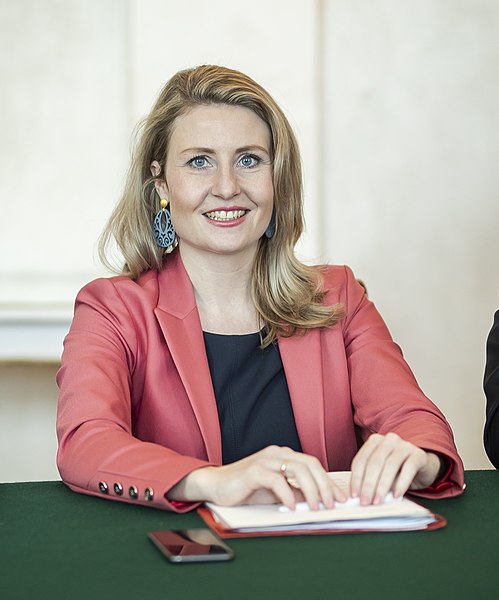
Austria's Integration Minister, Susanne Raab, a member of the conservative ÖVP party, has suggested a new requirement for immigrants to attain a specific level of
proficiency in the German language if they wish to receive social benefits. The proposal aims to enhance their integration into the labor market.
Raab, representing the Austrian People's Party (ÖVP), outlined the concept of linking a "certain level of language proficiency" to certain forms of social welfare assistance, referred to as Sozialhilfe. She suggested that recipients should achieve this proficiency within a designated timeframe to retain their benefits.
Currently, only attendance is mandatory to maintain eligibility for social assistance.
Raab expressed these thoughts during the presentation of the 'Integration Report' on Thursday, as reported by the Austrian newspaper Der Standard.
"We are considering how to implement this legally," Raab stated.
She also endorsed the idea of introducing a waiting period for immigrants seeking access to social assistance in Austria, drawing inspiration from the Danish model.
As previously reported, the ÖVP has proposed that foreign residents must reside in Austria for a period of five years before becoming eligible for benefit claims.
Raab emphasized that the social welfare system should not serve as an incentive for immigration.
She expressed her perplexity about the fact that numerous individuals complete various courses but fail to enter the labor market, remaining stuck in an "endless course loop."
Raab found it unacceptable that individuals spend years within the welfare system, especially considering the current labor market situation. She clarified that the focus is not always on achieving university-level proficiency in German, but on acquiring fundamental skills.
Among foreign nationals who arrived in Austria in 2022, seven out of 10 required literacy support, Raab revealed. This ratio was particularly high among Syrians, reaching 78 percent.
Katharina Pabel, the chairperson of the integration advisory board, emphasized the necessity of providing immigrants with more assistance. Pabel advocated for a more flexible approach to German language learning, citing online German learning units organized by the Integration Fund (ÖIF), which are customized for entry-level jobs.
However, this proposal faces significant opposition.
Yannick Shetty, the integration spokesman for the liberal NEOS party, accused Raab of "appeasing the FPÖ (Freedom Party) by advocating for populist cuts in social benefits."
Experts also raised concerns about the feasibility of implementing a "performance requirement."
Christoph Riedl, an asylum expert at the Diakonie social welfare organization, cast doubt on the legality of linking course performance to benefits under international law. He cited the Geneva Convention on Refugees, which mandates equal treatment for refugees and citizens.
Lukas Gahleitner-Gertz from the Asylkoordination group for asylum seekers argued that such a requirement would need to apply to immigrants of all nationalities entering Austria to comply with EU law.
Austria boasts a diverse population, with the latest figures revealing that one in four individuals in the country has a migration background.
In 2022, a total of 2.35 million individuals with a migration background resided in Austria, according to Tobias Thomas, Director General of Statistics Austria. The percentage of individuals with both parents born abroad increased from 25.4 percent the previous year to 26.4 percent of the total population by the end of 2022.
Among the 1.7 million foreigners living in Austria as of January 1st, 225,000 were German citizens, making them the largest group. This was followed by Romanians (147,500), Serbians (121,900), and Turkish nationals (119,700).
Other countries of origin, including Croatia, Hungary, Bosnia and Herzegovina, Syria, Ukraine, and Poland, ranked in the fifth to tenth positions. Notably, since 2015, the highest increases in absolute numbers were observed among Romanians (a rise of 74,100), Ukrainians (a surge of 71,000), Syrians (an increase of 70,900), and Germans (a rise of 54,500).



































